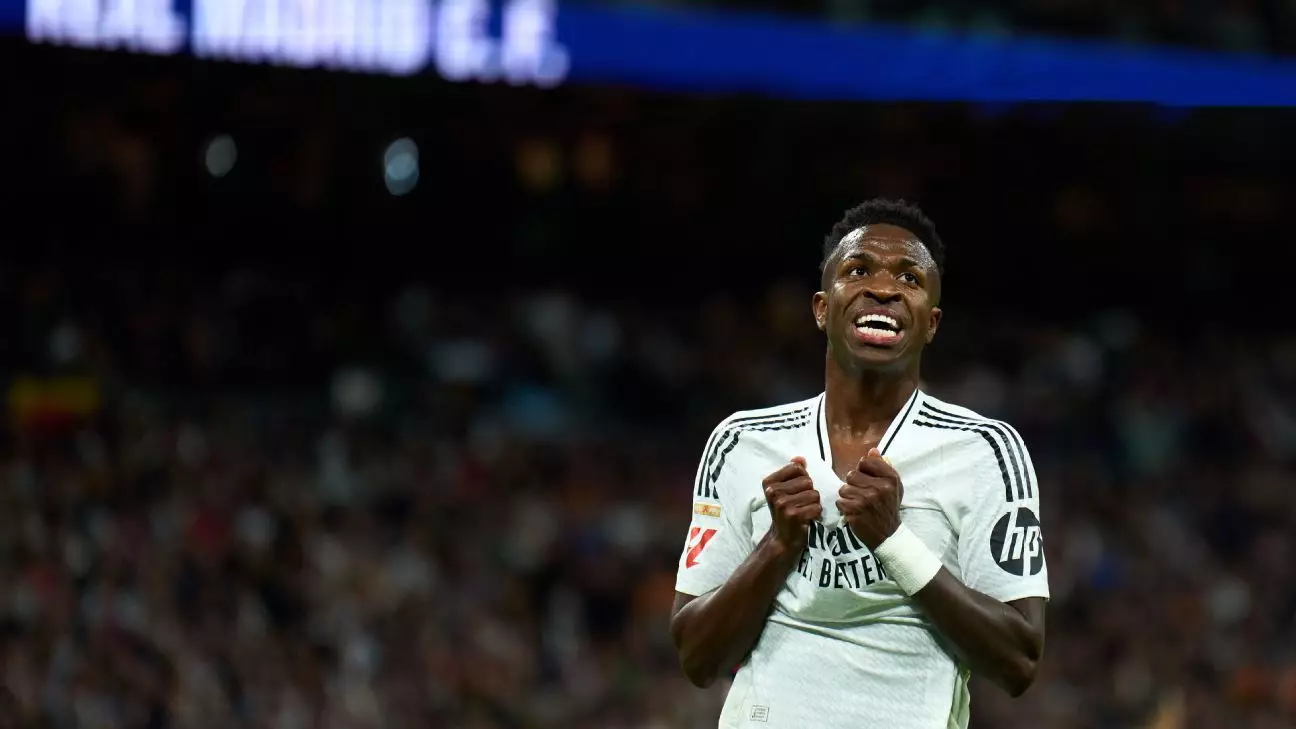In the realm of sports, the ability to overcome failure is often the mark of greatness. History is littered with examples of athletes who transformed negative experiences into motivation, propelling themselves to extraordinary achievements. The question now arises: can Vinícius Júnior, Brazil’s budding soccer star, harness this principle following his recent exclusion from the prestigious Ballon d’Or nominations? His response to this perceived injustice provides a window into his character—and potentially a defining moment in his career.
Vinícius’s furious reaction to the Ballon d’Or snub caught many by surprise, especially considering the grandeur of his ambitions leading up to the event. Not only did he expect to win, but he had also envisioned grand celebrations in heady anticipation of his crowning as the football world’s best. When the announcement ultimately favored a player from another club, it felt like an injustice that challenged his self-belief and commitment to excellence.
The narrative around Vinícius is not unique. The world has seen countless athletes take rejection as fuel for their fire. Perhaps the most striking among these examples is Michael Jordan, who once faced the humiliation of being cut from his high school basketball team. Instead of capitulating to that sting, he channeled it into relentless hard work and determination, ultimately becoming a six-time NBA champion. Similarly, The Beatles were famously turned away by DECCA studios, only to rise to become the most celebrated musical act in history—a testament to perseverance.
As we observe Vinícius’s situation, we gain insight into how deeply rooted personal motivations can be. Many athletes seem to carry the weight of rejection as a badge of honor, a stark reminder of their journey. This is essential to understand because, unlike many, Vinícius seems poised to take the slights personally, propelling him to heights many believe he is capable of reaching.
A Defiant Stance: Social Media as a Platform for Resurgence
Vinícius’s reaction was swift and vocal. Utilizing social media, he declared, “I’ll do 10 times more if I have to. They’re not ready.” This proclamation resonated with millions, reflecting a resilient attitude that some athletes often exude in times of adversity. However, social media has a dual nature; while it can serve as a platform for motivation and community support, it can also heighten pressure and expectations.
With over 128 million views, Vinícius’s post was more than a mere statement; it was a rallying cry that signaled his intent to rise above the criticism. The significance of his words lies in their embodiment of defiance against negative forces—forces that would seek to stifle his talent and passion.
Nevertheless, channeling disappointment into positive energy requires a nuanced approach. The young Brazilian is at a pivotal juncture in his career, and how he navigates this emotional landscape will dictate his future. The stakes are high, especially against formidable opponents like AC Milan in the Champions League. His natural aggression and competitive spirit must be tempered with emotional intelligence, ensuring that he doesn’t allow frustration to overrun his performance.
Vinícius’s interactions—with teammates like Karim Benzema and instances of on-field adversity—underscore an important lesson in resilience. Instead of crumbling under pressure, he transformed criticism into collaboration, exhibiting the worth of self-awareness in high-stress environments.
Despite a commendable track record of maintaining composure, recent patterns indicate that the weight of expectations may be influencing Vinícius’s demeanor negatively. As he contemplates the future, he must reflect on how to balance the inherent pressures of being one of Real Madrid’s poster boys with the journey of self-improvement that lies ahead.
The lesson here transcends sports—it’s about personal growth. Athletes like Vinícius are not merely entertainers; they are role models. Their ability to face adversity publicly offers valuable lessons in facing challenges with grace and determination, ultimately leading to broader societal impacts.
As we observe Vinícius Júnior post-Ballon d’Or snub, the critical question remains: will he rise above the disappointments to craft a stellar narrative, or will he succumb to negativity? The choices he makes now will not only define his athletic journey but will also serve as a reflection of his character. It’s a delicate balance between proving critics wrong and allowing that fire to light the way to greatness.
In concluding, it is paramount for Vinícius to find inspiration in rejection while actively engaging in personal development. His intrinsic drive can either transform him into a beacon of positivity or pull him down a path of frustration. The choice is his—and with it, the potential for a resplendent future awaits.

